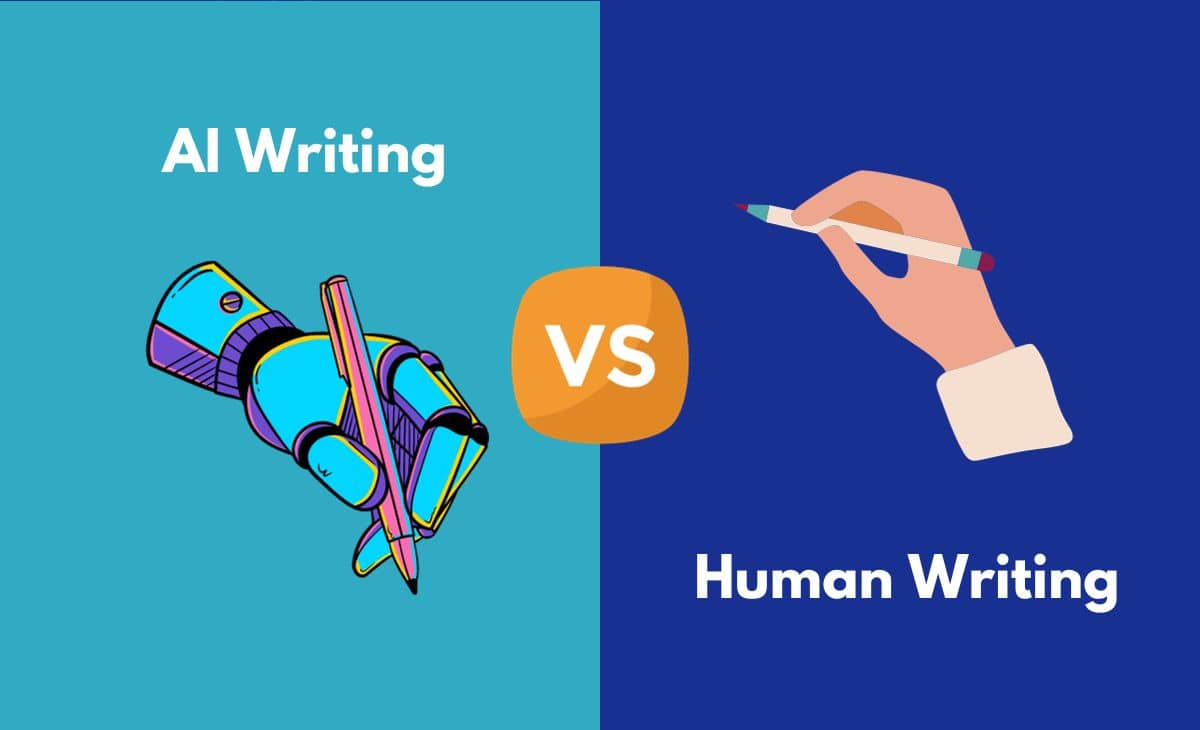Introduction
In the digital age, the way we produce and consume content has undergone a significant transformation. One of the most debated topics in the content creation realm is the comparison between AI-generated writing and human writing. With the advent of sophisticated AI tools capable of generating content, the lines between machine-generated and human-generated content are blurring. This article delves deep into the nuances, strengths, and limitations of both AI writing and human writing, drawing insights from various expert sources.
Quick Overview
At a glance, AI writing is characterized by its efficiency, consistency, and scalability, while human writing is marked by its creativity, emotional resonance, and unique personal touch.
Difference Between AI Writing and Human Writing in Tabular Form
| Aspect | AI Writing | Human Writing |
|---|---|---|
| Speed | Fast and efficient | Varies based on individual |
| Creativity | Limited to trained data | Infinite, driven by emotions and experiences |
| Emotional Resonance | Lacks depth and emotional connection | High emotional depth and connection |
| Customization | Limited personalization | Highly personalized |
| Errors | Consistent, but may lack nuance | Prone to errors but can be more nuanced |
| Context Understanding | Often lacks deep context understanding | Understands and adapts to context |
| Storytelling | Structured, may lack compelling narratives | Excels in crafting narratives |
| Research | Quick data retrieval, may lack depth | In-depth research, offers unique insights |
Is there any tool that can convert AI text to human-like text?
Yes, there are many tools available online that can help you convert AI content to human-like content. One such tool is "Humanize AI Text". To the best of our knowledge, this tool can convert content from ChatGPT, Bard, or any other AI-generated text to sound more human-like tone. This AI to Human Text Converter is free and available online.
What is AI Writing?
AI writing refers to content that is generated through algorithms, typically trained on vast datasets. These algorithms, leveraging the power of machine learning and deep learning, can produce content at a rapid pace. Tools like Jasper, OpenAI's ChatGPT, AI Homework Helper, and others have made waves in the content industry for their ability to churn out vast amounts of content in record time. The primary advantages of AI writing include:
- Speed: AI can produce content at a pace that is often unmatched by human writers.
- Consistency: Given a set of guidelines, AI can produce content that adheres to those guidelines consistently.
- Scalability: For bulk content requirements, AI tools can be a boon.
However, AI writing is not without its limitations. It often lacks the emotional depth, creativity, and context-awareness that human writers bring to the table.
What is Human Writing?
Human writing, the age-old art of crafting content, is driven by individual experiences, emotions, creativity, and expertise. Every human writer brings a unique voice to their content, making it distinct and emotionally resonant. The hallmarks of human writing include:
- Creativity: Humans have the innate ability to think outside the box, bringing fresh perspectives to topics.
- Emotional Resonance: Human writers can tap into emotions, crafting content that resonates deeply with readers.
- Context Awareness: Humans can understand the nuances of different contexts, tailoring their content accordingly.
Can I can convert
In-depth Comparison (in Points)
Let's delve deeper into the differences between AI and human writing:
- Creativity & Innovation: While AI is bound by its training data, humans possess innate creativity. Human writers can introduce new ideas, perspectives, and innovative approaches to topics, making their content fresh and engaging.
- Emotional Depth: AI-generated content often lacks the emotional depth and resonance of human writing. Humans can weave emotions into their narratives, making them more relatable and impactful.
- Context & Nuance: AI might miss out on subtle nuances and context-specific details, whereas humans excel in understanding and adapting to various contexts.
- Research & Depth: Human writers often conduct in-depth research, offering insights and details that AI might overlook. While AI can retrieve data quickly, it might not always understand the depth and significance of that data.
- Personalization & Customization: Human content is tailored, personalized, and crafted with a specific audience in mind. AI, on the other hand, might offer limited personalization based on its programming.
- Storytelling: Humans are natural storytellers. They can craft compelling narratives that captivate readers, a skill that AI is still trying to master.
- Ethical Considerations: Human writers adhere to ethical standards, ensuring content integrity. AI-generated content might inadvertently propagate biases present in its training data.
The Ideal Balance
While AI writing tools offer numerous advantages, especially in terms of efficiency and scalability, they cannot wholly replace the emotional depth, creativity, and unique touch of human writers. The future of content creation might lie in a balanced approach, where AI tools are used to assist human writers, ensuring efficiency without compromising on quality.
Conclusion
The debate between AI writing and human writing is not about replacement but collaboration. As AI tools continue to evolve, they will undoubtedly play a significant role in the content creation landscape. However, the creativity, emotional depth, and unique touch of human writers remain irreplaceable. By harnessing the strengths of both AI and human writing, we can pave the way for a content-rich future that values efficiency without compromising on emotional resonance and creativity.

